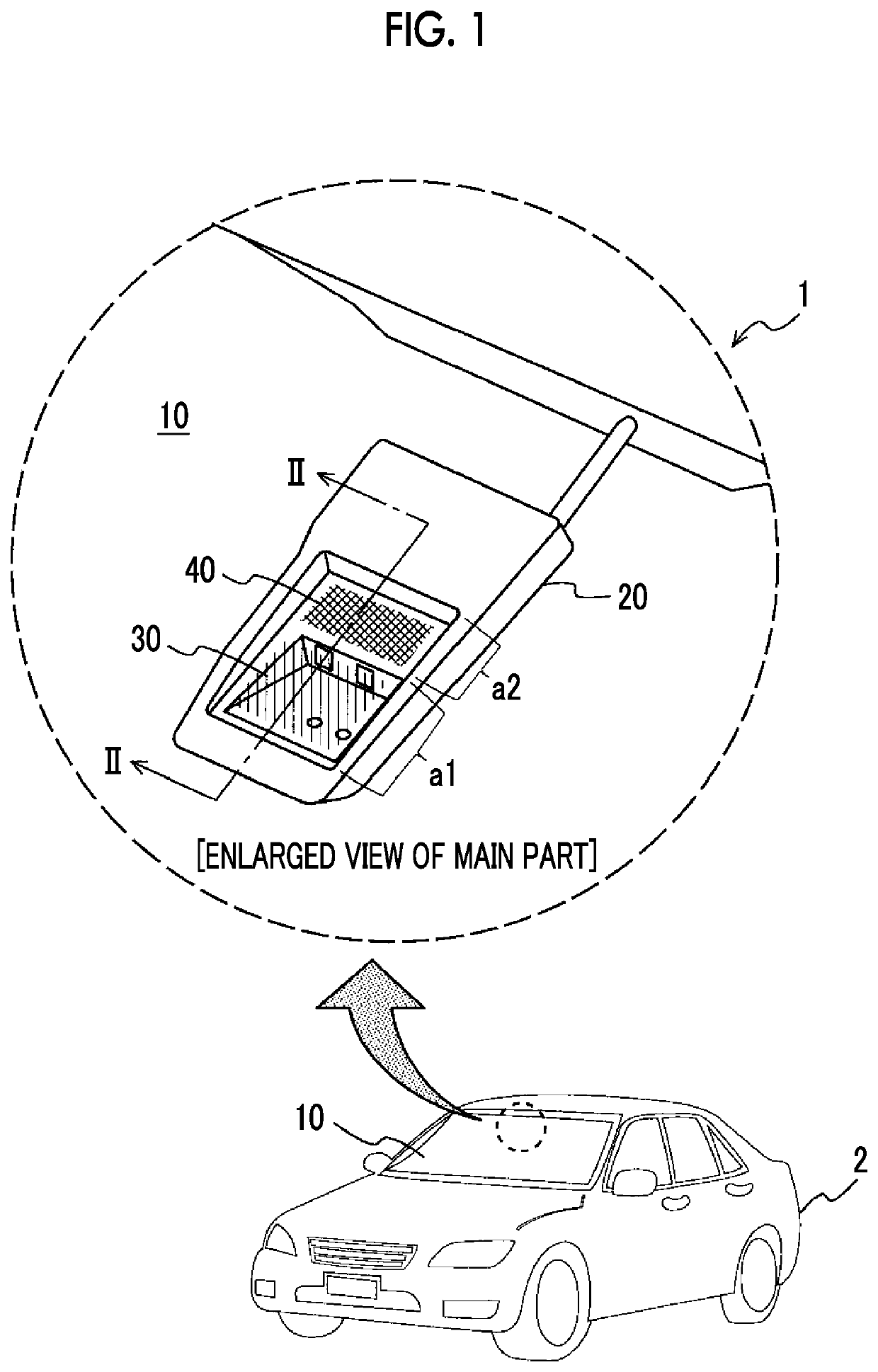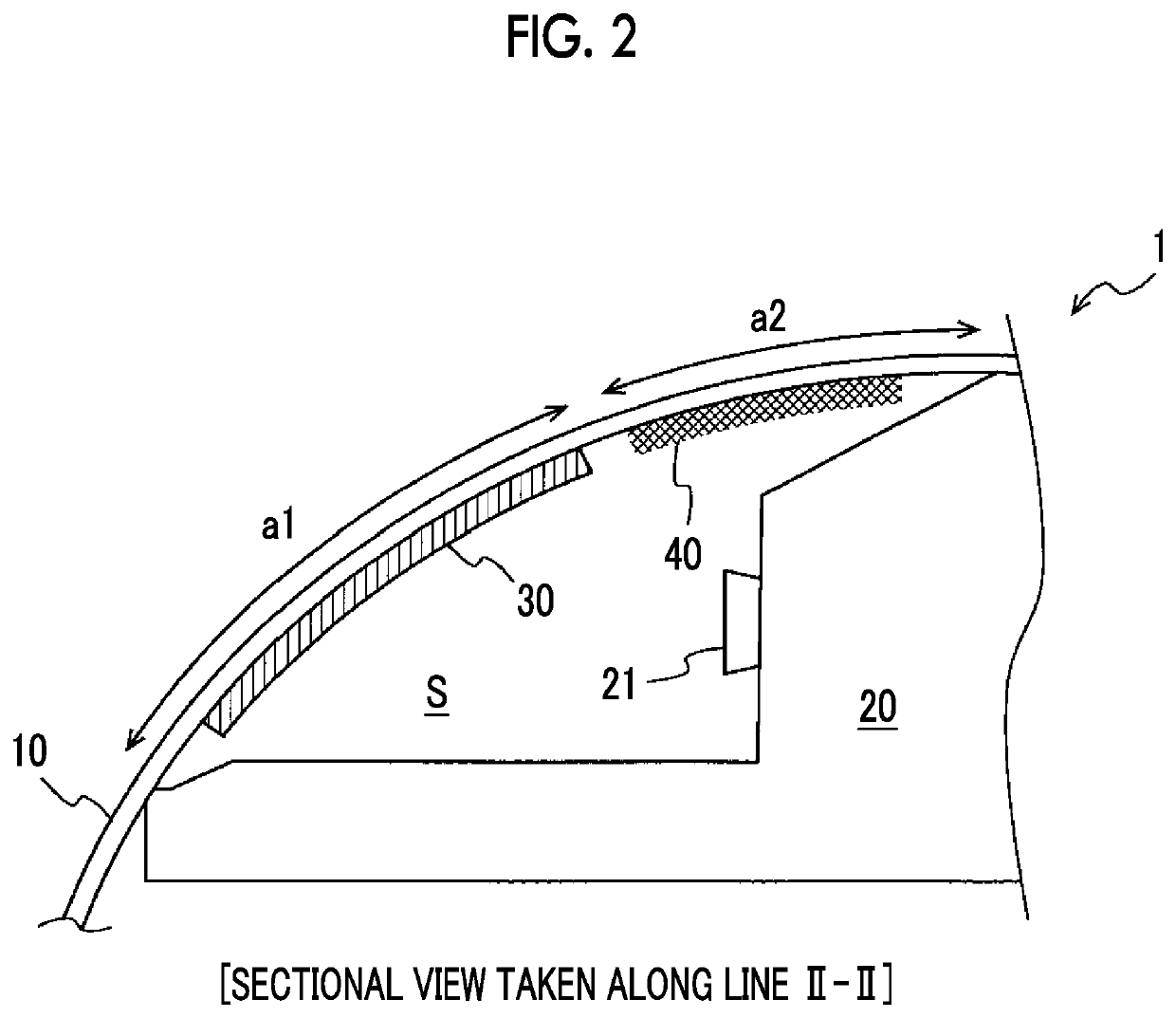Vehicular optical system
a technology of optical system and optical device, applied in the field of optical system, can solve the problems of lens and glass the anti-fogging portion disposed in front of the optical device becomes foggy, and the above-mentioned optical system cannot be properly operated, so as to improve the anti-fogging properties of the first region (angle of view)
- Summary
- Abstract
- Description
- Claims
- Application Information
AI Technical Summary
Benefits of technology
Problems solved by technology
Method used
Image
Examples
Embodiment Construction
[0019]Overview
[0020]A vehicular optical system decreases the amount of moisture in the region of the angle of view of an optical device by allowing the moisture that is included in a closed space to concentrate in a region of the inner surface of a transparent member that is out of the angle of view of the optical device with the closed space formed by the optical device and the transparent member such as a windshield being attached to each other. As a result, the possibility of the system becoming inoperable by the transparent member on the front surface of the optical device becoming foggy can be suppressed.
[0021]Configuration of Vehicular Optical System
[0022]A diagram illustrating a schematic configuration of a vehicular optical system 1 according to an embodiment and an enlarged view of its main part are illustrated in FIG. 1. FIG. 2 is a sectional side view taken along line II-II of the enlarged view of the main part of the vehicular optical system 1 that is illustrated in FIG....
PUM
 Login to View More
Login to View More Abstract
Description
Claims
Application Information
 Login to View More
Login to View More - R&D
- Intellectual Property
- Life Sciences
- Materials
- Tech Scout
- Unparalleled Data Quality
- Higher Quality Content
- 60% Fewer Hallucinations
Browse by: Latest US Patents, China's latest patents, Technical Efficacy Thesaurus, Application Domain, Technology Topic, Popular Technical Reports.
© 2025 PatSnap. All rights reserved.Legal|Privacy policy|Modern Slavery Act Transparency Statement|Sitemap|About US| Contact US: help@patsnap.com


